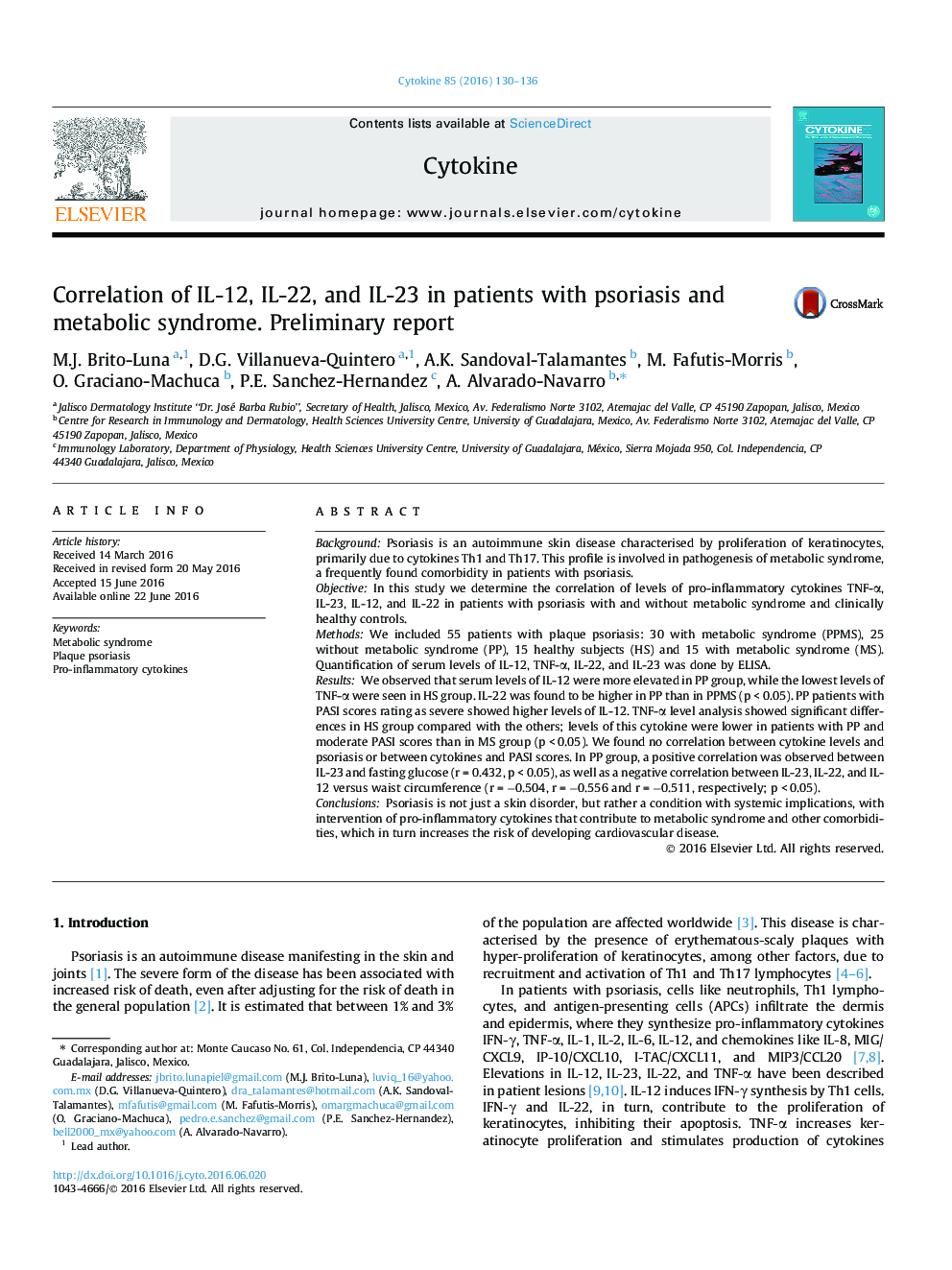| Article ID | Journal | Published Year | Pages | File Type |
|---|---|---|---|---|
| 5896722 | Cytokine | 2016 | 7 Pages |
â¢Serum IL-12 were more elevated in PP group than HS group.â¢Serum IL-22 was found to be higher in PP group than in PPMS group.â¢We found no correlation between cytokine levels and psoriasis nor with PASI scores.â¢In PP group a positive correlation was observed between IL-23 and fasting glucose.â¢In PP group negative correlation between IL-22 and IL-12 with waist circumference.
BackgroundPsoriasis is an autoimmune skin disease characterised by proliferation of keratinocytes, primarily due to cytokines Th1 and Th17. This profile is involved in pathogenesis of metabolic syndrome, a frequently found comorbidity in patients with psoriasis.ObjectiveIn this study we determine the correlation of levels of pro-inflammatory cytokines TNF-α, IL-23, IL-12, and IL-22 in patients with psoriasis with and without metabolic syndrome and clinically healthy controls.MethodsWe included 55 patients with plaque psoriasis: 30 with metabolic syndrome (PPMS), 25 without metabolic syndrome (PP), 15 healthy subjects (HS) and 15 with metabolic syndrome (MS). Quantification of serum levels of IL-12, TNF-α, IL-22, and IL-23 was done by ELISA.ResultsWe observed that serum levels of IL-12 were more elevated in PP group, while the lowest levels of TNF-α were seen in HS group. IL-22 was found to be higher in PP than in PPMS (p < 0.05). PP patients with PASI scores rating as severe showed higher levels of IL-12. TNF-α level analysis showed significant differences in HS group compared with the others; levels of this cytokine were lower in patients with PP and moderate PASI scores than in MS group (p < 0.05). We found no correlation between cytokine levels and psoriasis or between cytokines and PASI scores. In PP group, a positive correlation was observed between IL-23 and fasting glucose (r = 0.432, p < 0.05), as well as a negative correlation between IL-23, IL-22, and IL-12 versus waist circumference (r = â0.504, r = â0.556 and r = â0.511, respectively; p < 0.05).ConclusionsPsoriasis is not just a skin disorder, but rather a condition with systemic implications, with intervention of pro-inflammatory cytokines that contribute to metabolic syndrome and other comorbidities, which in turn increases the risk of developing cardiovascular disease.
